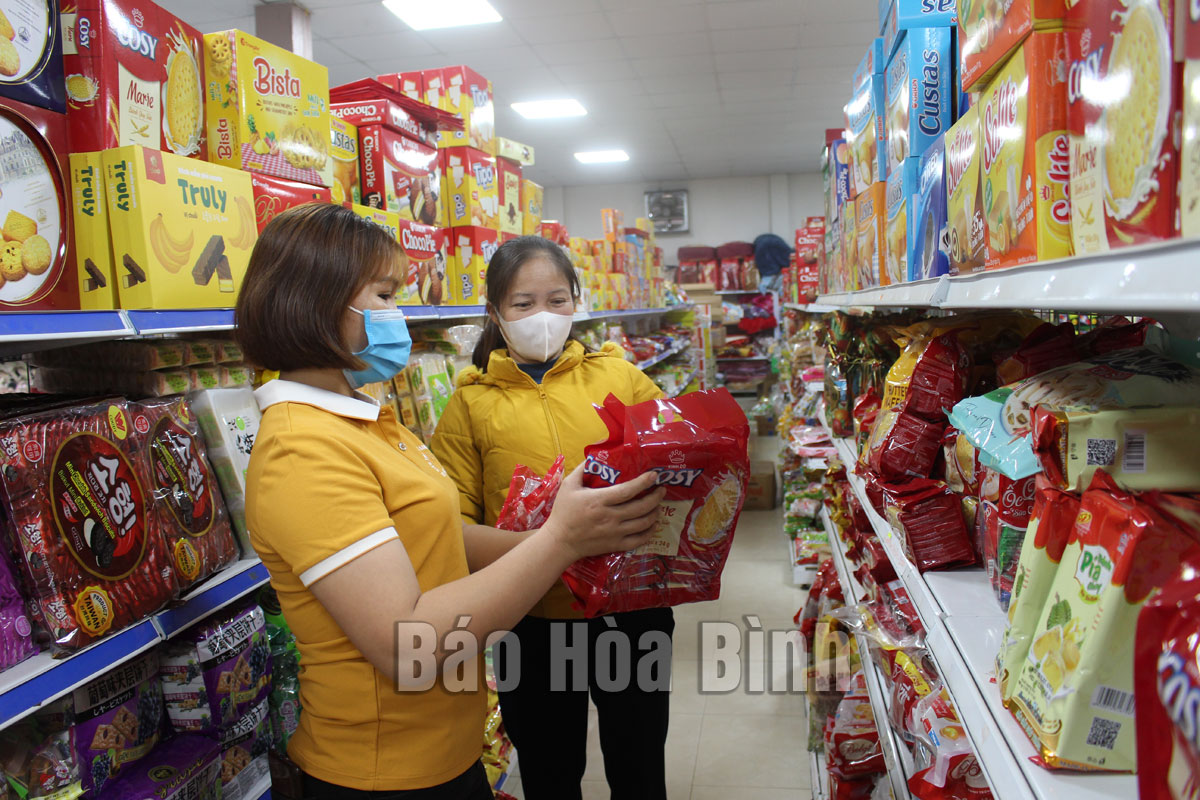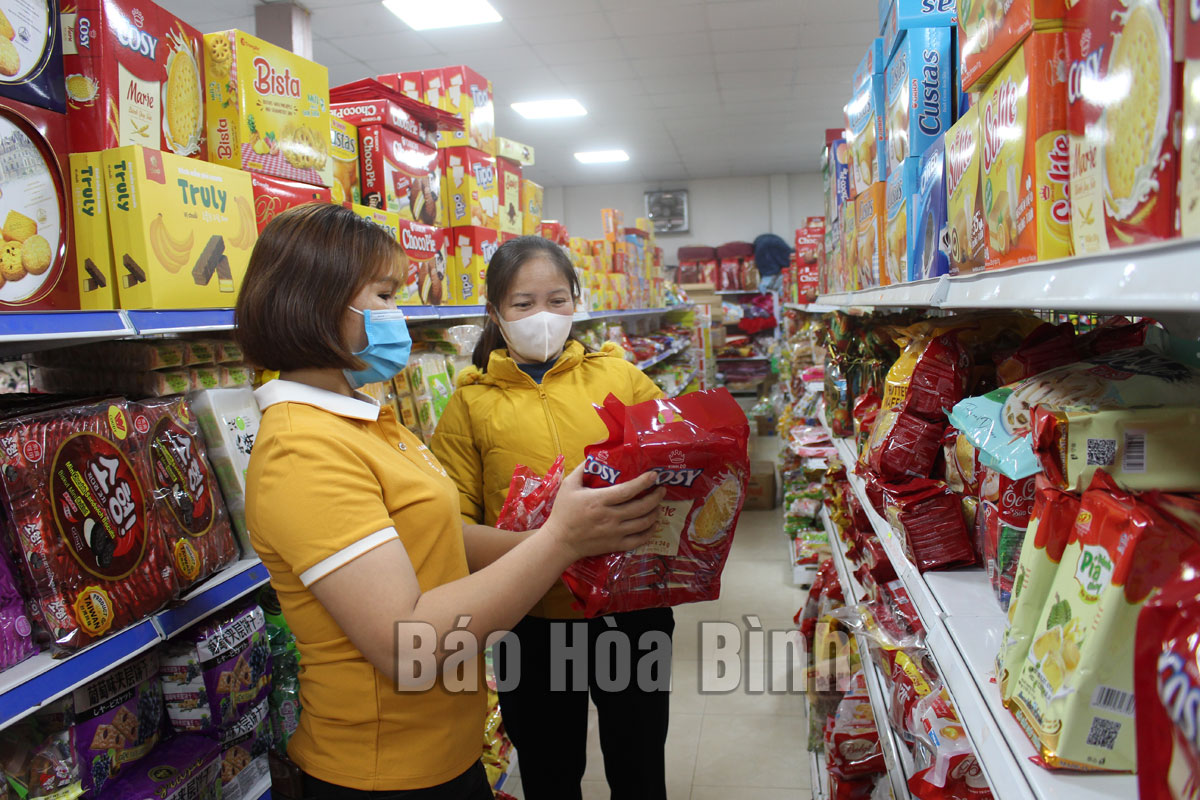
(HBO) – The commercial infrastructure of Tan Lac district has been built in the direction of combining traditional markets and professional trading points, mini supermarkets and convenience stores with diverse operating models and payment methods. This has contributed to economic restructuring, changing consumption habits, and raising incomes for local people.
Staff at Phuong Linh mart, Man Duc town
in Tan Lac district, introduce products to shoppers.
Nguyen Duc Nam, Deputy Director of the
district’s economic and infrastructure department, said in recent years, Tan
Lac has invested in the construction and renovation of its arterial roads,
contributing to promoting trade and good exchanges with neighbouring districts.
The district has been focusing on mobilising investment for upgrading and
developing commercial infrastructure, creating favourable conditions in terms
of administrative mechanisms and procedures for enterprises to invest in trade;
and encouraging households on National Highway 6 and Highway 12B to trade and
do business. In addition, the district has strengthened market inspection and
management as well as fraud combat to prevent goods shortage and price fevers.
Currently, Tan Lac has 310 business households,
two minimarts, and eight convenient stores, which use digital payment and
online trade methods. Trade and service activities have contributed to raising
incomes and creating jobs for locals, with stores and supermarkets meeting
residents’ shopping demand.
In addition, the traditional wet market system
has also been upgraded, helping boost retail and consumption development. The district
is home to 11 wet markets opening daily for farmers to sell their goods.
Given the rise of COVID-19, Tan Lac has built
its supply plan to ensure sufficient goods serving local consumers. In the
first ten months of 2021, its total retail and service revenue hit over 1.65
trillion VND (71.63 million USD), fulfilling 81.7 percent of the yearly plan.
For further trade-service growth, the district
will focus on building related infrastructure, expand the market, shopping
centre and supermarket systems, creating favourable conditions for business and
production activities, intensifying market and food safety management, and
promoting trade, among other works./.
According to data from the Hoa Binh Provincial Party Committee, the industrial production index for the first six months of 2025 is estimated to have increased by 20% compared to the same period last year. This marks the highest year-on-year growth rate for this period since 2020.
In the first six months of 2025, Hoa Binh province’s export turnover was estimated at 1.145 billion USD, marking an 18.11% increase compared to the same period in 2024. Import turnover was estimated at $ 804 million, a 17.15% increase, which helped the province maintain a positive trade balance.
The lives of the ethnic minority farmers in Tan Lac district have gradually improved thanks to the new directions in agricultural production. This is a testament to the collective strength fostered through the professional associations and groups implemented by various levels of the district’s Farmers’ Union.
With the motto the "product quality comes first,” after nearly one year of establishment and operation, Muong village’s Clean Food Agricultural and Commercial Cooperative, located in Cau Hamlet, Hung Son Commune (Kim Boi district), has launched reputable, high-quality agricultural products to the market that are well-received by consumers. The products such as Muong village’s pork sausage, salt-cured chicken, and salt-cured pork hocks have gradually carved out a place in the market and they are on the path to obtaining the OCOP certification.
In the past, the phrase "bumper harvest, rock-bottom prices" was a familiar refrain for Vietnamese farmers engaged in fragmented, small-scale agriculture. But today, a new spirit is emerging across rural areas of Hoa Binh province - one of collaboration, organisation, and collective economic models that provide a stable foundation for production.
Maintaining growing area codes and packing facility codes in accordance with regulations is a mandatory requirement for agricultural products to be eligible for export. Recently, the Department of Agriculture and Environment of Hoa Binh province has intensified technical supervision of designated farming areas and packing facilities to safeguard the "green passport" that enables its products to access international markets.



